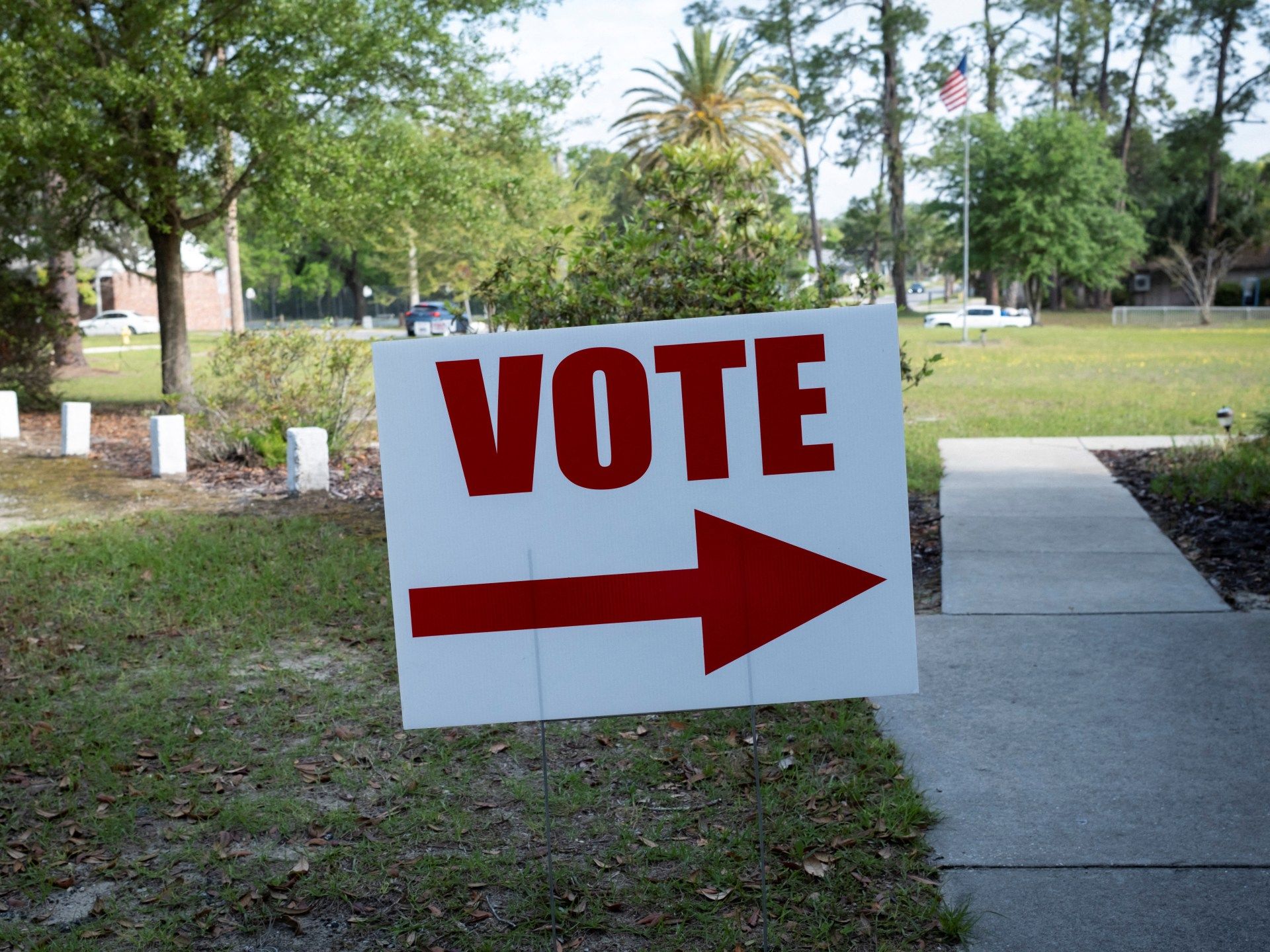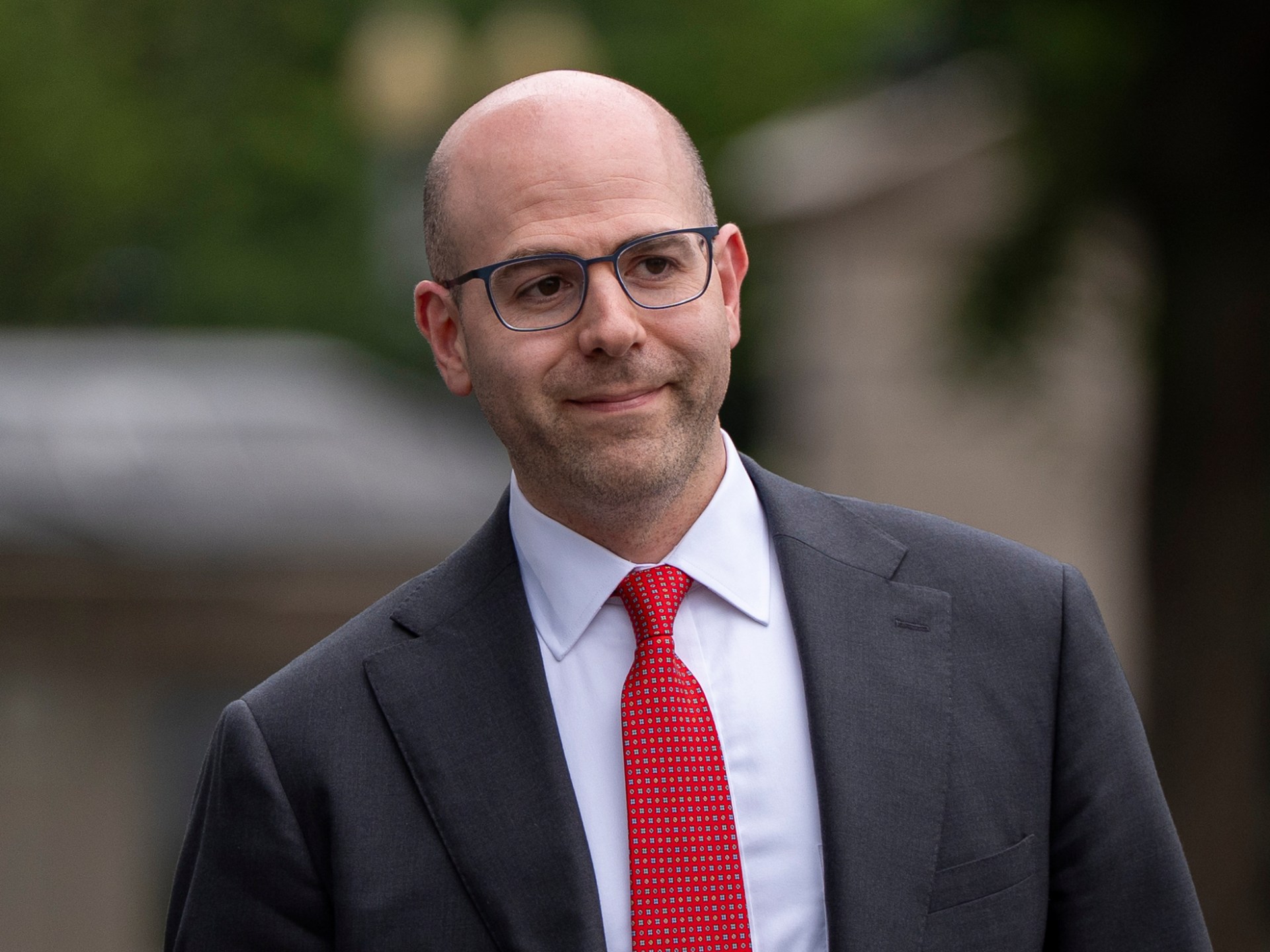Trump loyalist who pushed false election claims takes on government role | Donald Trump News
The administration of United States President Donald Trump has installed a right-wing researcher who pushed false claims about the 2020 election to a position in charge of election oversight.
As of Tuesday, a leadership chart for the Department of Homeland Security shows Pennsylvania activist Heather Honey serving as the deputy assistant secretary for election integrity in the Office of Strategy, Policy and Plans.
Honey’s appointment was first reported by the investigative news outlet Democracy Docket on Monday.
Her position has raised eyebrows among critics of the Trump administration due to her involvement in several efforts that resulted in misleading research about the 2020 presidential race.
Trump has pushed the false claim that his loss in the 2020 election was the result of massive fraud, and he has consistently refused to admit defeat.
Since returning to the White House for a second term in January, he has placed loyalists in positions of power, raising fears about the independence of certain offices.
He has also used his false claims of fraudulent elections to place pressure on the country’s electoral system, which is administered largely by state and local officials.
Critics have warned that overtly partisan appointments to posts overseeing elections could diminish confidence in the voting process.
“What I’m concerned about is that it seems like DHS [Department of Homeland Security] is being poised to use the vast power and megaphone of the federal government to spread disinformation rather than combat it,” David Becker, the executive director of the nonprofit Center for Election Innovation and Research, told The Associated Press news agency.
“It’s going to really harm DHS’s credibility overall.”
Who is Heather Honey?
Honey’s appointment in particular has prompted election experts and local officials to speak out, given her prominent role in spreading misinformation about the 2020 election.
For instance, Adrian Fontes, Arizona’s secretary of state and a Democrat, told the news outlet ProPublica in a statement that Honey has a “well-documented history of spreading election lies”.
Honey leads a consulting firm called Haystack Investigations, which was involved in election “audits”, which experts consider flawed, as well as another organisation called Verity Votes, which also purports to conduct election research.
Trump and his supporters have drawn on some of her firms’ conclusions in their efforts to undermine the 2020 election results.
In the key swing state of Pennsylvania, for instance, Honey’s group misrepresented incomplete voter data to falsely allege that the state had more votes than voters in 2020.
Two years later, in 2022, Verity Vote claimed that Pennsylvania sent mail-in ballots to voters who failed to provide appropriate identification.
State officials, however, accused Verity Vote of misrepresenting the “not verified” designation in its voting system.
In public statements, the Pennsylvania Department of State explained that it uses the “not verified” tag to signal to local officials that a voter’s identification needs to be verified. The designation is a “security feature” for voter applications, it said – not an indication that voters could submit ballots without proper ID.
Trump narrowly lost Pennsylvania in the 2020 election, with Democrat Joe Biden edging him out by less than 1 percent.
In Arizona, another critical battleground swing state that Trump lost in 2020, Honey participated in a partisan audit of election results in Maricopa County, a populous area containing the city of Phoenix.
Despite searching for fraud for nearly six months, the audit turned up no evidence that the outcome in Biden’s favour was erroneous. Still, experts say that audit was filled with errors and biased methodology.
In the years since, former Maricopa County Recorder Stephen Richer, a Republican, told The Associated Press that he had received dozens of public records requests related to elections from Honey.
Richer served in the role from 2021 to 2025, and said that such requests occupied “scores of hours of staff time”.
He told The Associated Press he was surprised to hear Honey was in a position of such “authority and responsibility” and said that she was “not a serious auditor”.
Honey is not the first Trump official to face public scrutiny for her role in his administration. Other appointees, like Emil Bove, have faced intense public questions about whether they would prioritise their loyalty to Trump over their commitment to government ethics.
Since his victory in the 2024 election, Trump has also opened investigations into critics and officials who probed his false claims about the 2020 election.
He has said he will do away with things like mail-in ballots and voting machines, demands shared by others who push anti-election conspiracies on the US right.

